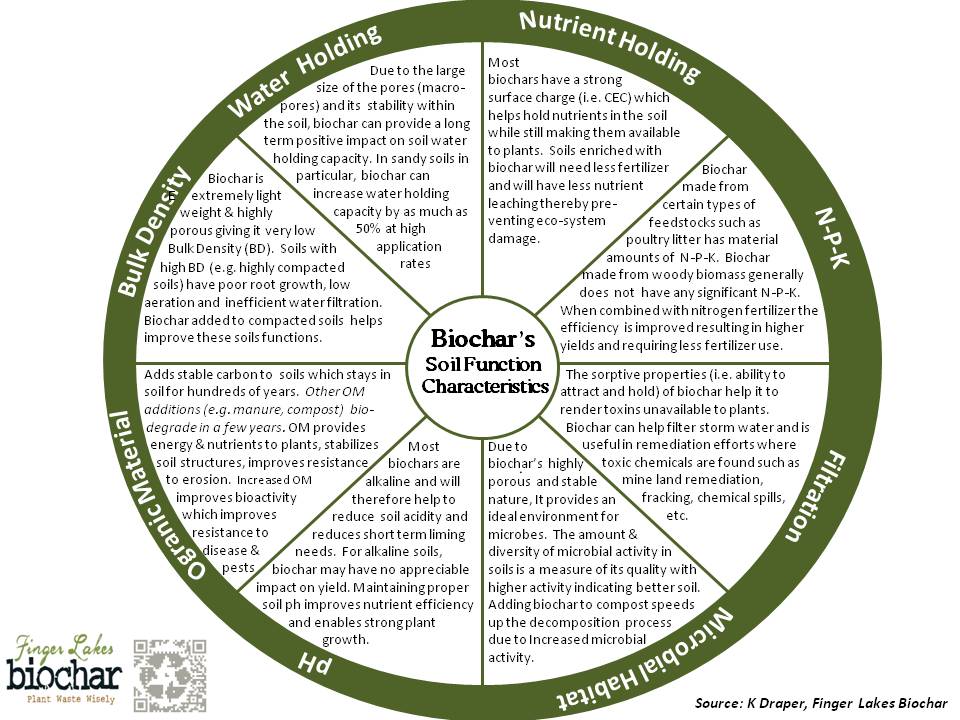This handy dandy little overview should give you a fairly good idea of how biochar can influence different soil functions. The amount of influence it will have varies depending on the specific soil texture you have, what you are trying to grow and what your climate is like.
All of these different enhancements usually leads up to improved yield when you use high quality biochar (have I mentioned that you need to know what kind of biochar you are buying already? yes, I thought so!). The good news is that the yield increase is highest on the poorest soils, but the amount of yield increase depends not only on those variables I just mentioned, but also on how much char you apply. Suffice to say, one-size-fits-all advice about biochar is not all that helpful (sorry!).
Have you picked up on what spectacular benefit of biochar has been left out of the Terra Preta Perks Pizza (let’s call this the TP3)? The ‘susty’ crowd would likely point out that the whole carbon sequestration benefit is no where to be found! How dare I? Well first off, its not really a soil function except perhaps in the organic materials slice I suppose. Biochar not only manages to convert up to 50% of the CO2 absorbed during a plant’s lifetime into a highly stable form of carbon but research has also shown that it can suppress methane emissions and reduce nitrous oxide emitted from soils. Both of these are MUCH more damaging in terms of GHG emissions than CO2, so this is a HUGE bene, I admit! BUT (and there always seems to be a ‘but’, right?) in the absence of a market where carbon has a price tag like the one the savvy Europeans have created, I think focusing on the quantifiable benefits that biochar can bring about in our soils and water, will resonate and hopefully motivate folks to give biochar a beta test!
My research partner, Christian, aka “CHARchemides”, got me thinking about the whole issue of ‘externalities’ which is basically an unpriced cost or benefit related to the use of a product or service (e.g. belching CO2 from coal plants has no cost to the producer and hence end-user, so nothing is ever done to reduce the damage…that is a negative externality, same with toxins dumped into lakes that manufacturers get away with). Alas I believe the sequestration benefit will have to remain an externality, at least for now. The good news is that its a really positive externality versus all of the negative ones that are associated with fossil fuels.

